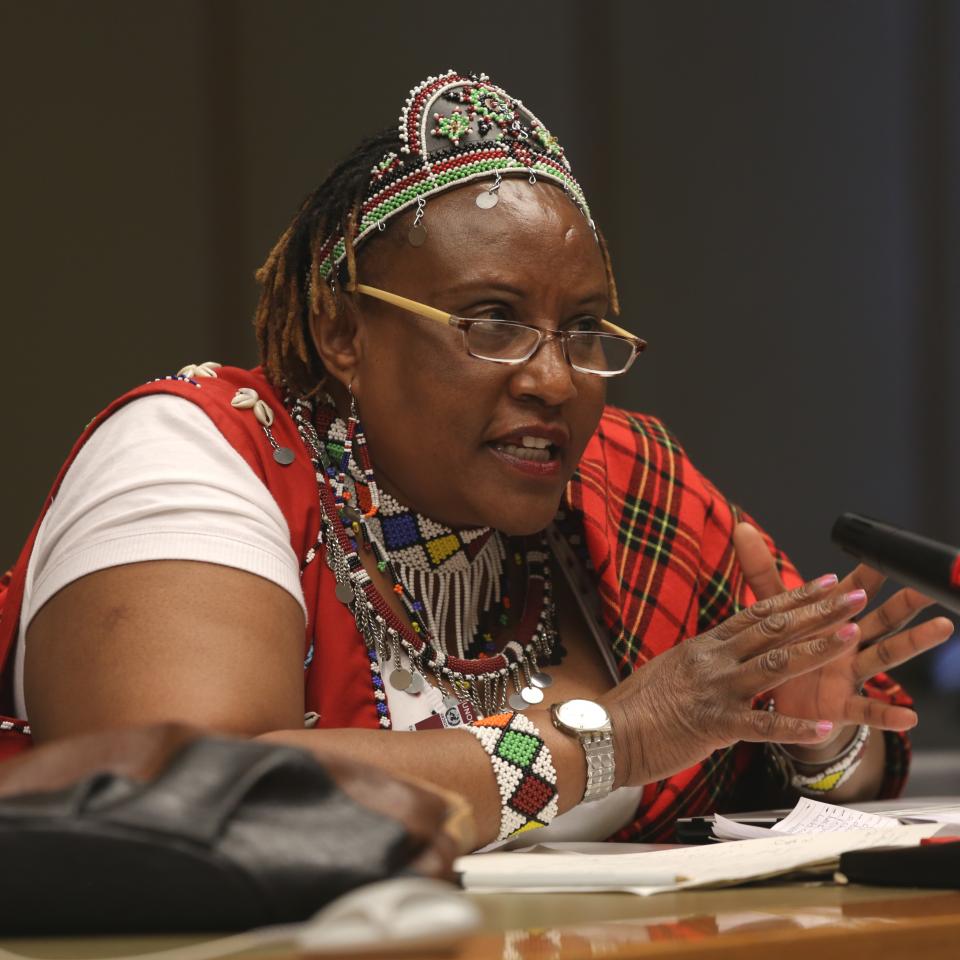Mary Simat Interview, 2013 Symposium / Entrevista con Mary Simat, Simposio de 2013
Mary Simat Interview, 2013 Symposium / Entrevista con Mary Simat, Simposio de 2013
This interview has been transcribed and subtitled in its original language. To that end, you have to click on the 'CC' button at the bottom, right hand side of the video. You can also activate subtitles in another language, by going into the settings of the video, then clicking on the subtitles section, then choosing the option 'auto-translate' and finally the language of your choice.
Interviewed during the 2013 Symposium, Mary Simat dwells on the difficulty and slowness of the UN system and on the fact that in the end it is the States —the ones refusing to listen— who have the last word.
She alludes to what the Conferences brought to the Indigenous Peoples in Kenya, particularly unity and motivation even though she regrets that the different communities are not working together in the UN or back home.
She believes that the Indigenous Peoples should have involved the youth in the Movement before and she calls on to the young Indigenous to take over and to make the most of what their Elders have to share with them.
She is convinced that the world’s definition of ‘poverty’ does not correspond to reality and that the existing resources —that she qualifies as ‘gold’— should be exploited effectively by the Peoples.
For her, fighting for your rights involves knowing those rights and she quotes a Maasai saying: “The eye that has gone outside sees better than the eye that is always seeing around.”
//
Esta entrevista fue transcrita y subtitulada en su idioma original. Con este fin, tienen que hacer clic en el botón 'CC' que se encuentra en la parte de abajo, derecha del video. También pueden activar los subtítulos en otro idioma, y tienen que hacer clic en las opciones del video, después seleccionar la parte de los subtítulos, más adelante escoger la opción de 'traducir automáticamente' y finalmente elegir el idioma de su elección.
Entrevistada durante el Simposio de 2013, Mary Simat hace un recuento de la dificultad y la lentitud del sistema de la ONU y del hecho de que al final son los Estados —que se niegan a escuchar— los cuales ponen punto final.
Alude a lo que las Conferencias llevaron a los Pueblos Indígenas en Kenia, especialmente unidad y motivación, aunque lamenta que las diferentes comunidades no estén trabajando junto en la ONU o cuando regresan en sus comunidades.
Cree que los Pueblos Indígenas deberían haber involucrado a los jóvenes en el Movimiento antes y hace un llamamiento a los jóvenes Indígenas a tomar el relevo y aprovechar al máximo lo que las previas generaciones tienen que transmitirles.
Está convencida de que la definición mundial de ‘pobreza’ no corresponde con la realidad y que los recursos existentes —que califica como ‘oro’— deberían estar explotados eficientemente por los Pueblos.
Para ella, luchar para sus derechos implica conocer estos derechos y cita a un adagio Maasai: «El ojo que ha estado afuera ve mejor que el ojo que siempre ve adentro.»
United Nations, Geneva, Switzerland / Naciones-Unidas, Ginebra, Suiza


